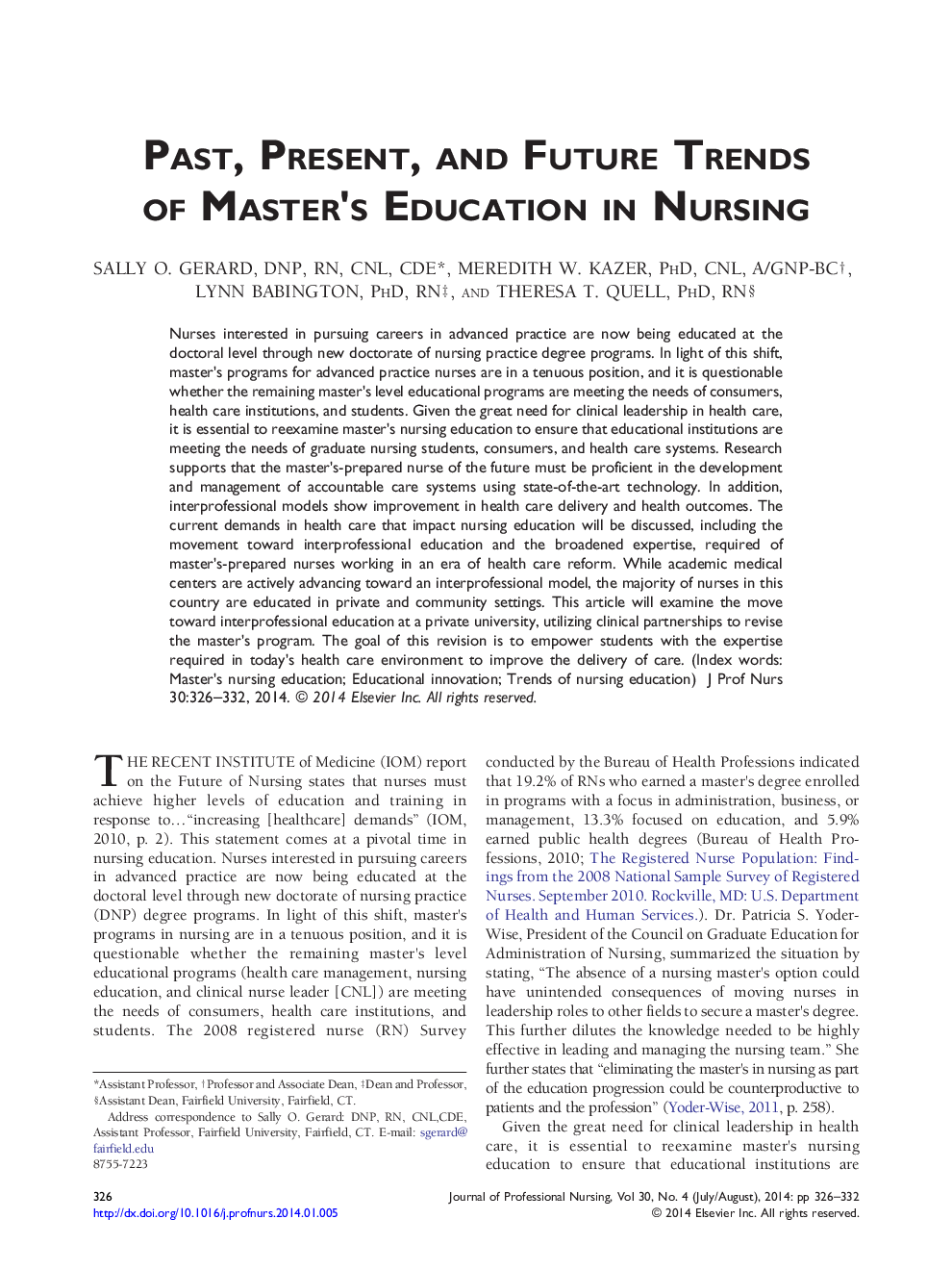| Article ID | Journal | Published Year | Pages | File Type |
|---|---|---|---|---|
| 2670994 | Journal of Professional Nursing | 2014 | 7 Pages |
Nurses interested in pursuing careers in advanced practice are now being educated at the doctoral level through new doctorate of nursing practice degree programs. In light of this shift, master's programs for advanced practice nurses are in a tenuous position, and it is questionable whether the remaining master's level educational programs are meeting the needs of consumers, health care institutions, and students. Given the great need for clinical leadership in health care, it is essential to reexamine master's nursing education to ensure that educational institutions are meeting the needs of graduate nursing students, consumers, and health care systems. Research supports that the master's-prepared nurse of the future must be proficient in the development and management of accountable care systems using state-of-the-art technology. In addition, interprofessional models show improvement in health care delivery and health outcomes. The current demands in health care that impact nursing education will be discussed, including the movement toward interprofessional education and the broadened expertise, required of master's-prepared nurses working in an era of health care reform. While academic medical centers are actively advancing toward an interprofessional model, the majority of nurses in this country are educated in private and community settings. This article will examine the move toward interprofessional education at a private university, utilizing clinical partnerships to revise the master's program. The goal of this revision is to empower students with the expertise required in today's health care environment to improve the delivery of care.
